
Sports have this incredible, almost magical way of weaving themselves into the fabric of our lives. We cheer, we cry, we ride every emotional rollercoaster with our favorite athletes, watching them defy limits and craft legacies that feel larger than life. From the thrill of a last-minute goal to the heartbreak of a buzzer-beater loss, these heroes become ingrained in our memories, transforming from mere players into true global icons, connecting people in a way few other things can.
But every epic story, no matter how thrilling, eventually has its final chapter. For some athletes, this transition feels like a natural, graceful exit, a well-deserved bow after years of unwavering dedication. For others, though, the goodbye hits different. It’s sudden, it’s unexpected, it’s the kind of announcement that makes the whole sports world collectively gasp and say, “Wait, WHAT just happened?!” These are the moments that leave a lasting impact, moments when legends step away and leave us with memories that will never fade.
These are the moments that stick with us, the retirements that pull the rug out from under us and reshape the landscape of their respective sports in an instant. Get ready to dive into the stories of 15 legends who, for a myriad of reasons — from seeking new passions to battling personal demons, from devastating injuries to a simple loss of love for the game — chose to step away at times when we least expected it, leaving behind a trail of shock, admiration, and a whole lot of questions. Let’s take a look back at some of the most unforgettable goodbyes in sports history.
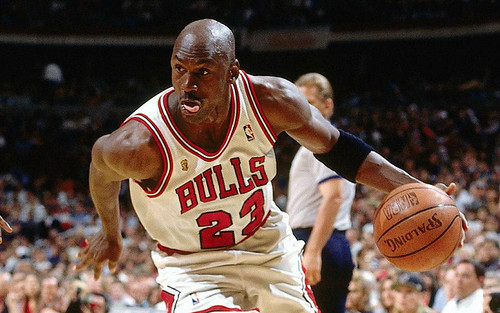
1. **Michael Jordan – The First Shockwave That Changed Everything (1993)**Okay, let’s kick things off with arguably the biggest mic-drop in sports history. Imagine this: it’s 1993, Michael Jordan is at the absolute zenith of his powers. He’s just led the Chicago Bulls to their *third consecutive NBA championship*, solidifying their dynasty status and his own as the undisputed king of basketball. The league is his playground, the world his oyster. He’s the man who “made basketball a global phenomenon,” and frankly, it felt like he could do no wrong. And then, out of nowhere, he announces his retirement. Talk about a plot twist that no one saw coming!
Jordan’s first goodbye in 1993 wasn’t just shocking; it sent seismic waves through the entire sports universe. The official reason cited was a “lack of passion for the game” and, more profoundly, the tragic death of his father, James Jordan, earlier that year. To many, it felt unfathomable that a player of his caliber, still so young and so dominant at 30, would simply walk away from it all. This wasn’t a veteran winding down; this was a god-tier athlete at the peak of his powers, stepping off the stage.
Fans, teammates, and even rival players were left in utter disbelief. The NBA without Magic Johnson was one thing, but the NBA without Michael Jordan? It was almost impossible to comprehend. He even tried his hand at minor league baseball, playing for the White Sox, which only added to the mystique and the sheer unexpectedness of his departure. His statement, “I have reached the pinnacle of my career… I just feel,” perfectly captured the sense of a man seeking new challenges after conquering his sport.
Little did we know, this was just the first act of an even grander, more mythical career, but at that moment, on October 6, 1993, it was pure, unadulterated shock.
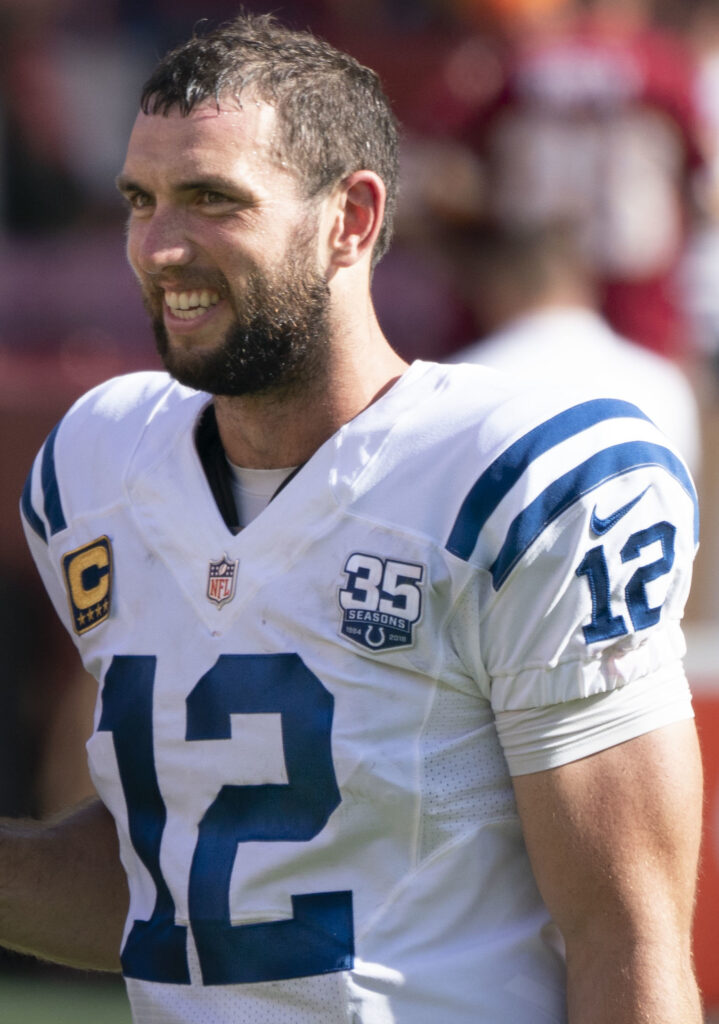
2. **Andrew Luck – The Preseason Heartbreak That Stunned the NFL (2019)**Fast forward to 2019, and another quarterback, hailed as a generational talent, delivered a gut punch that reverberated across the NFL. Andrew Luck, coming out of Stanford, was “considered maybe the best quarterback prospect since Peyton Manning.” Fittingly, he was drafted by the Indianapolis Colts to replace Manning, whose career had been sidetracked by a neck injury. Luck shouldered those weighty expectations with grace, largely living up to the hype and then some.
When he was healthy, Luck was “as good as advertised,” making “4 Pro Bowls and winning the 2018 Comeback Player of the Year Award.” He demonstrated incredible resilience and skill, carving out a reputation as a dynamic, intelligent leader on the field. The problem, as many fans know, was that Luck wasn’t healthy as often as he would have liked. He battled through a relentless string of injuries, from a lacerated kidney to a nagging shoulder issue, taking a severe physical and mental toll.
So, when he announced his retirement “just weeks before the 2019 season” during the preseason, it wasn’t just shocking – it was devastating. Fans attending the Colts’ preseason game were heartbroken, some even booing, as the news broke. The Colts were reportedly “speechless, and so was the entire football world,” completely blindsided by the departure of their franchise cornerstone right before the season began.
At just 29 years old, and still in his prime, Luck chose to step away, “citing mental and physical pressures.” This wasn’t a decline due to age; this was a conscious, courageous decision to prioritize his well-being over the relentless demands of the game. It was a stark reminder that even for the most gifted athletes, the grind can become too much, and the love for the game can be overshadowed by the toll it exacts on their bodies and minds. His “decision to leave football behind rocked the sports world to its core,” leaving a massive void and a lingering question of “what if?” in Indianapolis.
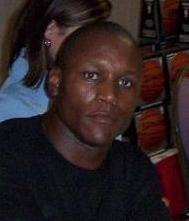
3. **Barry Sanders – The Quiet Departure That Left Lions Fans Reeling (1999)**If there was ever an athlete who left us wanting more, it was Barry Sanders. The Detroit Lions running back was a human highlight reel, an electrifying force who made defenders look silly with his elusive jukes and breathtaking speed. “From the time he was a freshman for the Oklahoma State Cowboys, no one could ever really get their hands on Barry Sanders.” He rolled off “10 consecutive Pro Bowl seasons” with the Lions, often carrying a struggling franchise on his back and providing “jaw-dropping highlights of jukes, broken tackles, and breakaway speed every time he stepped on the field.”
Then came July 1999. Sanders, still undeniably “dominating defenses” and “just shy of breaking Walter Payton’s rushing record,” dropped a bombshell. He “announced his retirement… by faxing a statement to the Wichita Eagle, his hometown paper.” A fax! In the age of dramatic press conferences and social media announcements, this quiet, almost unassuming departure only amplified the shock and made it all the more surreal. It felt almost out of character for such a phenomenal player.
At only 31, and “still in his prime,” the “notoriously introverted Sanders” walked away, “citing a lack of love for the game” and the Lions’ “poor performance” as reasons for his departure. Fans and teammates were “stunned,” and for good reason. “The decision stunned the entire NFL, and Lions fans still haven’t fully recovered” from losing arguably the greatest running back of all time so prematurely. He could have easily broken records and played for several more years, but he simply didn’t want to.
His departure left an indelible mark, not just for the records he nearly broke, but for the sheer audacity of leaving at the absolute peak of his unparalleled career. “There’s never been another football player like Sanders, and there probably never will be,” and his quiet exit only deepened the legend of a man who always did things his own way, even when it meant walking away from glory.
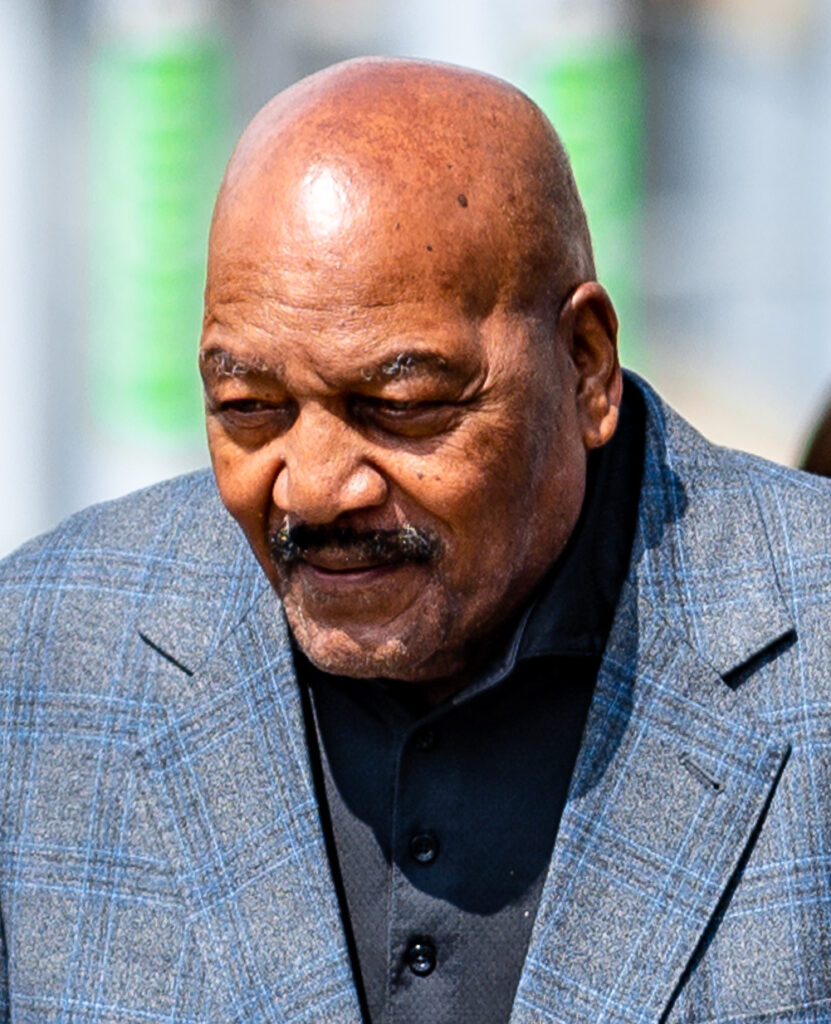
4. **Jim Brown – When Hollywood Came Calling (1966)**Now, let’s rewind to an era where the concept of an athlete retiring for reasons beyond physical decline was almost unheard of. Enter Jim Brown, a man who didn’t just play football; he revolutionized it. Drafted by the Cleveland Browns in 1957, Brown was “basically unstoppable from day one.” He was an “8-time First-Team All-Pro and led Cleveland to an NFL title in 1964.” He “made the Pro Bowl in each of his nine seasons” and “led the league in rushing in every one of those campaigns with the exception of 1962.” His track record of success at the highest level is simply “unmatched.”
Brown’s dominance on the field was unquestionable, but he also had “many interests outside of football, too.” He wanted to get into acting and had “plenty of opportunities in Hollywood.” This wasn’t a minor hobby; Brown was serious about a career in film, and he didn’t see himself being able to fully commit to both. He believed in giving 100% to whatever he pursued.
So, in 1966, “at the height of his career,” Brown made a decision that “shocked fans and analysts alike”: he retired from the NFL to pursue an acting career full-time. “The NFL had never seen anything like it before.” To leave football, still “in his prime at 29 years old,” for Tinseltown seemed almost sacrilegious to some, but it was a testament to Brown’s strong will and his broader ambitions. He was a superstar running back leaving a burgeoning career for another, equally demanding, one.
This wasn’t an injury-forced exit, nor was it a quiet fade into obscurity. This was a superstar choosing a completely different path, valuing his artistic ambitions over continued gridiron dominance. His departure, explicitly called “one of the boldest moves in sports history,” cemented his legacy not just as arguably the greatest player in NFL history, but as a trailblazer who dared to prioritize personal fulfillment and broader interests over athletic accolades, proving that athletes could be more than just their sport.
Read more about: Jay North, the Enduring Spirit of ‘Dennis the Menace’ Star, Dies at 73: A Comprehensive Look at His Tumultuous Journey and Lasting Impact
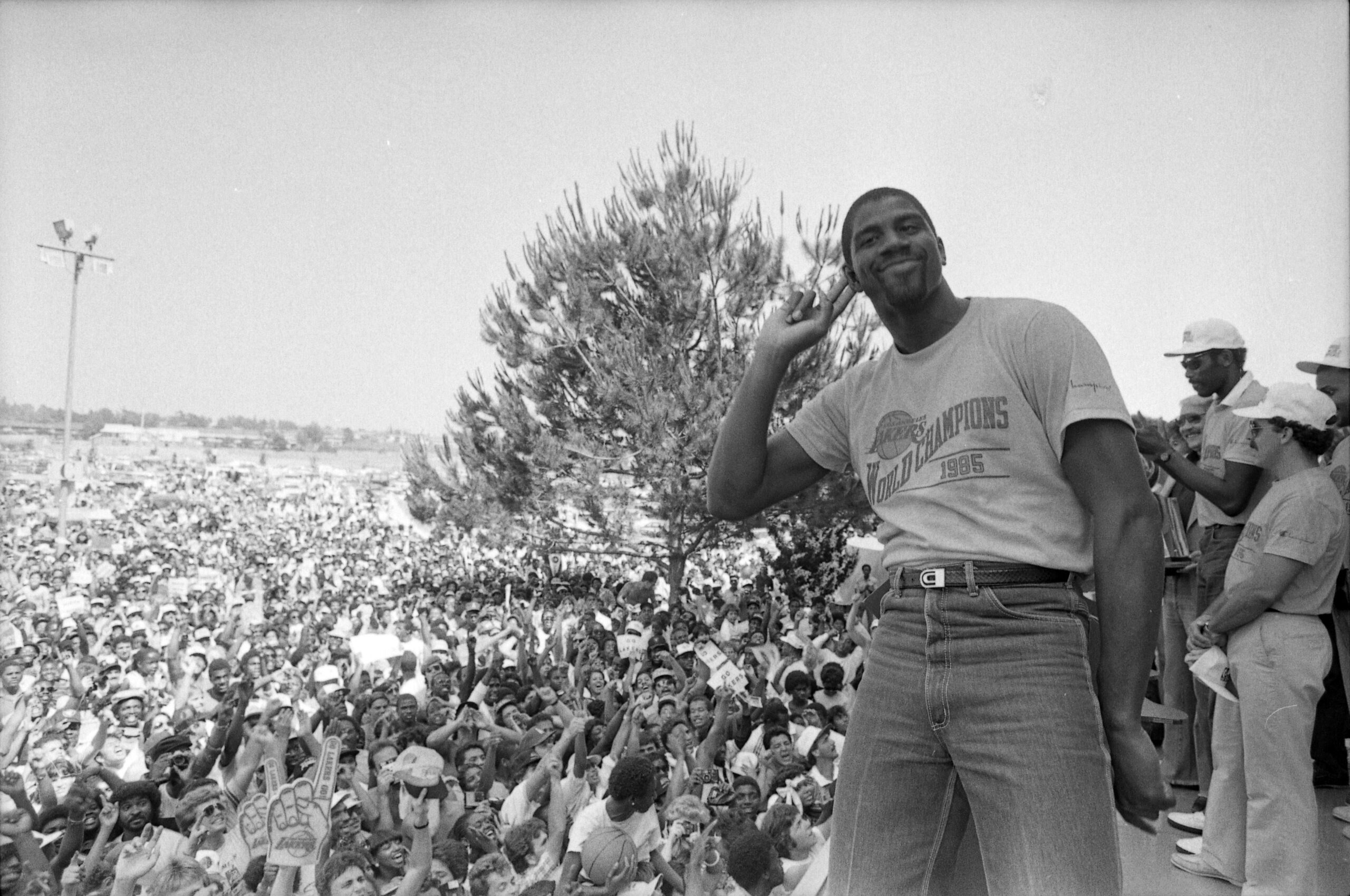
5. **Magic Johnson – A Public Health Revelation That Rocked the World (1991)**The 1991 announcement by Magic Johnson transcends sports, becoming a moment etched into global consciousness. The Los Angeles Lakers point guard was synonymous with “Showtime” basketball, a “12-time All-Star” who “won 5 NBA titles” and was “as celebrated as much for his innovative, dominant play as he was for his advertising ability and telegenic smile.” He was at “the height of his stardom,” a charismatic, telegenic leader who embodied joy on the court.
Then, in November 1991, everything changed. Magic called a press conference and “announced that he had tested positive for the HIV virus” and “retired immediately.” The news was absolutely devastating, not just for basketball fans, but for a world still grappling with “irrational fears about the AIDS/HIV epidemic.” This was a public health revelation delivered by one of the world’s most beloved athletes, and it sent shockwaves far beyond the court, igniting a crucial, difficult conversation.
His retirement “wasn’t just heartbreaking for basketball fans, but scary for ill-informed Americans across the country.” At 32, Johnson “was showing little sign of being ready to relinquish his fading claim as the NBA’s best player.” The Lakers had just faced Michael Jordan and the Chicago Bulls in the NBA Finals a few months earlier, and Magic still seemed very much at the top of his game, ready for more battles.
While he briefly returned for the 1992 All-Star Game and again in 1996, his initial announcement was a moment of profound shock and a poignant reminder of the fragility of life. It forced a crucial conversation about a disease that was still widely misunderstood and stigmatized, turning an athletic retirement into a monumental moment for public awareness and education. Today, “Twenty-nine years later, Magic is going strong,” a testament to his resilience and a legacy that extends far beyond basketball.
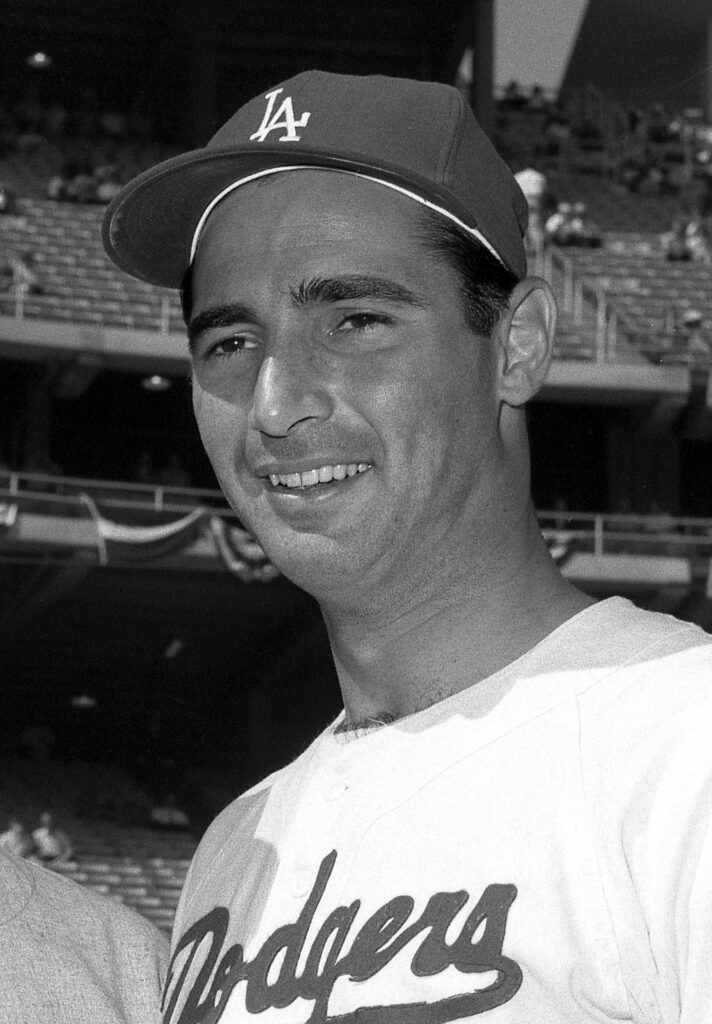
6. **Sandy Koufax – The Agony of Unstoppable Greatness (1966)**Baseball boasts its own share of shocking departures, and Sandy Koufax’s 1966 retirement stands as one of the most poignant and bittersweet. “It took a while for Sandy Koufax to figure out major league hitters,” struggling for years with his control as a “Brooklyn-born bonus baby.” But when he finally made it to the big club and found his rhythm, he was “virtually unhittable.” The Brooklyn and Los Angeles Dodgers legend “established himself as one of the most dominant pitchers of all time in the 1960s after his career initially got off to a slow start.”
Koufax embarked on “6 straight seasons that may never be matched,” a period of unparalleled dominance. He won “the 1963 National League MVP, three Cy Young Awards, and three pitchers’ Triple Crowns.” He led the Dodgers to World Series victories in 1963 and 1965, throwing four no-hitters in four consecutive seasons and setting a new mark for strikeouts with 382 in 1965. His dominance was absolute, his talent unparalleled, and he was the undisputed king of the mound.
Yet, this incredible run came at a tremendous physical cost. The lefty “suffered from an arthritic condition that he had trouble managing,” specifically in his elbow, which caused “arthritis-related pain.” He relied heavily on painkillers to get through games, and the toll was becoming unbearable. It was a choice between his career and his long-term health, and he bravely chose the latter.
At just 30 years old, after the 1966 season, Koufax “announced his retirement,” calling it quits “succumbing to arthritis-related pain.” It was a devastating blow for baseball, losing a generational talent at the very peak of his powers to an ailment that simply wouldn’t allow him to continue. His departure highlighted the brutal physical demands of sports and the immense courage it takes to know when to walk away, even when your skills remain elite and you still love the game. “Koufax was inducted into the Baseball Hall of Fame in 1972 and remains a revered figure in baseball history.”
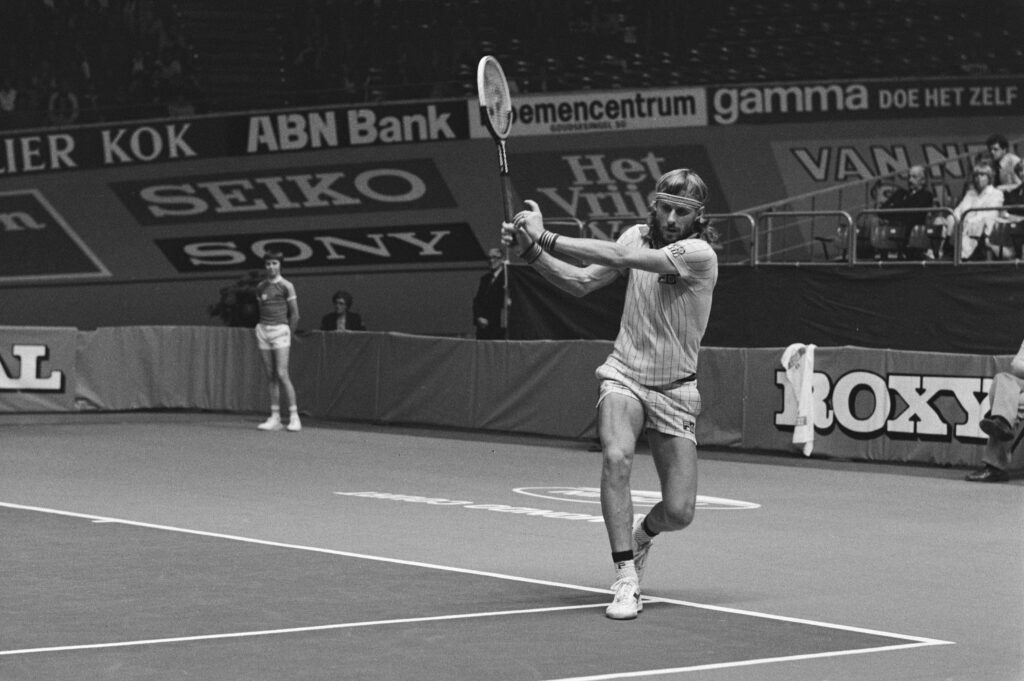
7. **Bjorn Borg – Burnout at the Peak of Perfection (1983)**In the refined world of tennis, where careers can stretch into the late 30s, Bjorn Borg’s departure in his mid-20s was a true anomaly, deeply shocking to fans and commentators alike. The “Swedish icon made his professional tennis debut in 1973,” and a year later, he became “the youngest player to ever win the French Open at age 18.” This triumph ignited “one of the most impressive runs of success in the history of individual sports.”
Borg went on to win an astounding “five more French Open titles and five consecutive Wimbledon championships from 1974 to 1981.” He was the epitome of cool, an unstoppable force with ice in his veins, dominating the sport with a fierce, quiet intensity. He captured 11 Grand Slam titles, a remarkable feat that placed him among the all-time greats. Yet, beneath the stoic exterior, the relentless pressure and constant spotlight were taking their toll.
“The fame and adulation that accompanied his success weight on Borg,” creating a suffocating environment. The constant media attention, the travel, the expectation to win every single match – it became unbearable. He admitted he “didn’t feel sadness” at his decision, implying a deep weariness. Despite his continued dominance, the joy had simply evaporated, replaced by an overwhelming sense of exhaustion.
In 1983, at the shockingly young age of 26, Borg “announced his retirement,” citing “burnout, which was at that time a new phenomenon in the sporting world.” He explicitly mentioned a “loss of enjoyment and a desire for privacy.” To walk away from such an incredible career, from a sport he had so thoroughly conquered, due to mental and emotional fatigue, was unprecedented. It was a wake-up call for the sports world, highlighting the immense psychological burden placed on elite athletes and demonstrating that even the greatest can simply run out of steam, choosing peace and a normal life over continued glory. “Borg remains content with his decision, noting that modern players have more security and privacy protections.”
Okay, so we’ve already plunged into some truly mind-boggling sports goodbyes, but trust us, the well of shock value isn’t dry yet! The beauty (or perhaps the heartbreak) of sports is that just when you think you’ve seen it all, an athlete comes along and pulls another rabbit out of the retirement hat. Get ready to have your jaw drop a few more times as we continue our journey through the annals of athletic departures that left us all collectively scratching our heads and asking, “Why?!”
These next stories are just as compelling, just as dramatic, and sometimes, just as head-spinning as the ones we’ve already discussed. From health concerns that cut careers short to incredibly unique personal decisions, these athletes proved that stepping away from the spotlight can be just as impactful as shining brightly in it. Let’s pick up the list where we left off and explore even more moments that redefined what it means to say goodbye to the game.
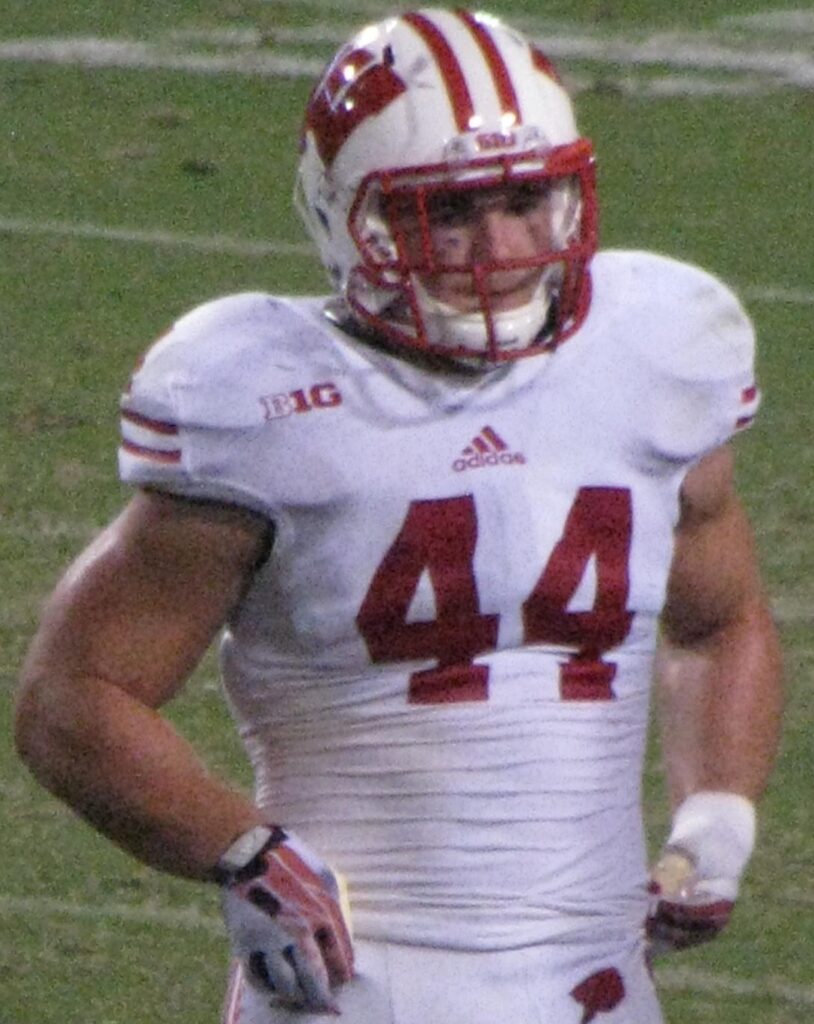
8. **Chris Borland – The Rookie Who Chose Health Over Stardom (2015)**Imagine this: you’ve just had a standout rookie season in the NFL, proving every doubter wrong and establishing yourself as a burgeoning star. That’s exactly where Chris Borland found himself after the 2014 season. Despite a “star-studded career at the University of Wisconsin,” he somehow lasted until the third round of the draft. But the San Francisco 49ers quickly realized they had struck gold with the linebacker, who almost immediately became the leader of their defense, seemingly out of nowhere.
In that single, electrifying rookie year, Borland was an absolute force, notching “107 tackles, picked off 2 balls and was named to the league’s All-Rookie team.” He was destined for greatness, hailed as the future of the 49ers’ defense, and fans were already dreaming of a legendary career filled with Pro Bowl selections and Super Bowl triumphs. His impact was immediate and undeniable, making his presence felt in every game he played and showcasing a talent that belied his draft position.
Then, just as quickly as his career started, it was over. In 2015, after just one season, Borland announced his retirement, sending shockwaves through the NFL. The reason? “Citing fear of head trauma,” he made the incredibly brave and profoundly shocking decision to step away. At only 24 years old, and at the absolute beginning of what promised to be an elite career, Borland prioritized his long-term health over the immense fame and fortune that awaited him. It was a stark, headline-grabbing reminder of the growing concerns around player safety and the silent toll the game takes, a choice that echoed across the entire sports world.
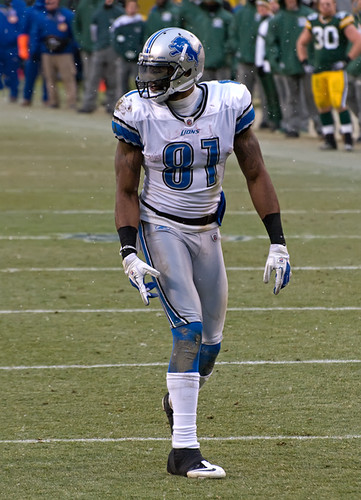
9. **Calvin Johnson – When ‘Megatron’ Had Enough of the Physical Toll (2016)**When we talk about physically dominant wide receivers, Calvin Johnson, affectionately known as “Megatron,” is usually at the very top of that conversation. Coming out of Georgia Tech, he “lived up to his pre-draft hype” and then some, becoming one of the most imposing and electrifying offensive weapons in NFL history. He was a highlight reel waiting to happen, known for his incredible catches, powerful runs, and ability to simply overpower defenders.
From 2010 to 2015, Johnson made the Pro Bowl every single season and was named First Team All-Pro three times, showcasing unparalleled consistency and dominance. His magnum opus came in 2012, a season where he hauled in “122 catches for an NFL record 1,964 receiving yards.” He was a superstar in every sense of the word, still very much in his prime, and seemingly had years of elite football left in his tank. His talent was undeniable, and it felt like he could continue breaking records for seasons to come.
Yet, for all his on-field heroics, the relentless physicality of the NFL was taking a devastating toll. In March 2016, at the young age of 30, the Detroit Lions superstar “announced his retirement,” stunning fans and experts alike. He famously said he was “fed up” with the constant pain and the immense physical burden football had placed on his body. Megatron still “had plenty left in the tank” skill-wise, but the battle with his own body became too much, leading to a heartbreaking, yet understandable, early exit for one of the game’s true titans. His decision felt like a punch to the gut for Lions fans, who watched their greatest offensive weapon walk away prematurely.
/origin-imgresizer.eurosport.com/2007/09/09/384053-23722808-2560-1440.jpg)
10. **Justine Henin – The World No. 1 Who Lost the Passion (2008)**In the fiercely competitive world of women’s tennis, reaching the pinnacle of the sport is a dream for many, but maintaining that top spot takes an extraordinary blend of talent, grit, and relentless dedication. Justine Henin, the “pride of Belgium,” was exactly that kind of athlete. After turning pro in 1999 at just 16, she wasted no time in proving herself as “the next all-time great,” quickly rising through the ranks with her powerful one-handed backhand and fierce competitive spirit.
Hening’s career was a whirlwind of success, marked by an impressive haul of Grand Slam titles. She captured her first major, Wimbledon, in 2001, and went on to win “eight additional majors over the next six seasons,” including a gold medal at the 2004 Olympics. She was the undisputed world No. 1, a dominant force with a seemingly unshakeable grip on the top of the rankings. Her mental fortitude and ability to perform under pressure were legendary, making her a formidable opponent for anyone on the circuit.
Then came May 2008, and with it, one of the most abrupt and shocking retirements in tennis history. Henin, “at 25-years-old,” and while still holding onto her “grip on the world’s No. 1 ranking,” announced she was stepping away. What made it even more surprising was her insistence that she “didn’t feel sadness” at her decision, a sentiment that spoke volumes about the deep-seated exhaustion and emotional toll the relentless grind had taken. Like Bjorn Borg before her, she briefly returned in 2010 but retired for good shortly after, cementing her legacy as a champion who simply chose peace over continued glory, a decision that left the tennis world reeling.
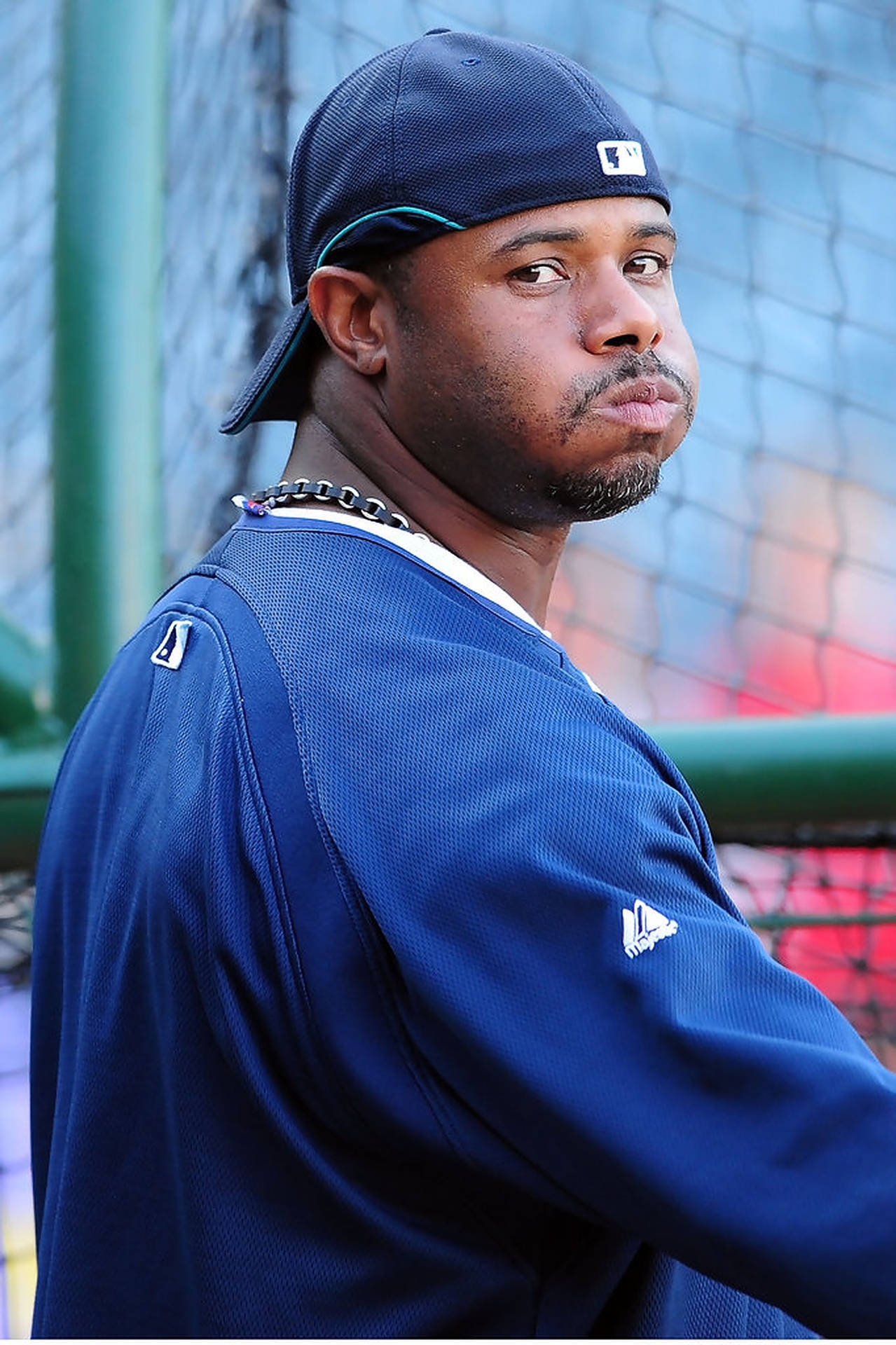
11. **Ken Dryden – Trading the Crease for the Parliament (1979)**When we talk about sporting legends who were truly masters of their craft, Ken Dryden’s name shines brightly in the annals of hockey history. This Montreal Canadiens goaltender was not just “really good at hockey”; he was so exceptional that “the award given to NCAA Division I Hockey’s best goaltender has been called the Ken Dryden Award since 1996.” Talk about leaving an indelible mark! He was a towering figure in the net, known for his calm demeanor and incredible reflexes, making the seemingly impossible save look routine.
Dryden’s NHL career, though relatively short, was nothing short of spectacular. He only played in the league for “7 full seasons,” yet in that brief span, he accumulated an astonishing list of accolades. He “made his mark in those years as he won the Vezina (best goaltender) Trophy 5 times and the Stanley Cup 6 times.” Imagine that kind of dominance – six championships in seven seasons! He was called up late in 1971 and immediately led the Canadiens to a Stanley Cup, earning the Conn Smythe Trophy as playoff MVP, even though he was a rookie in all but name.
Then, in 1979, at the age of 31, Dryden made a career choice that left the hockey world utterly speechless: he “retired… to pursue a career in politics.” This wasn’t an injury, a decline in skill, or burnout from the relentless pressure of the game. This was a superstar, still at the peak of his powers with a dynasty-era team, walking away from glory to dive headfirst into public service. It was an unprecedented move, cementing his legacy not just as a legendary athlete but as a visionary who dared to pursue intellectual and societal contributions beyond the rink, later serving in the Canadian Parliament. A truly shocking and inspiring twist!

12. **Dave Nilsson – The All-Star Catcher Who Just Wanted to Go Home (1999)**In the world of Major League Baseball, it’s rare enough to find a star, let alone one hailing from Australia. But Dave Nilsson was one of those exceptional talents, a catcher for the Milwaukee Brewers who carved out a successful career despite the long distance from home. He had proven his worth as a reliable and powerful hitter, and his presence behind the plate was always a steadying force for his pitching staff. His story was already unique, a testament to his dedication and skill.
Nilsson reached the pinnacle of his career in 1999, enjoying what was undeniably his “best season.” He hit an impressive “.309 with 21 homers” and rightfully earned a spot on the “National League All-Star team.” This was a player thriving, a clear leader on his team, and undoubtedly set for more success in the big leagues. Most athletes would jump at the chance to capitalize on such a stellar year, looking forward to bigger contracts and continued accolades.
But that would be his last season in the Majors. In a truly bizarre and completely unexpected move, Nilsson announced his retirement from MLB. Here’s the kicker: “Nilsson wasn’t injured or debilitated in any way, he was actually just homesick.” That’s right, the allure of millions, the roar of the crowd, the prestige of being an MLB All-Star – none of it could outweigh his desire to return to his native country and “spent time with his family.” It was a decision that baffled many, but also highlighted a refreshing prioritization of personal well-being over professional glory, as he subsequently “destroyed most of the Australian Baseball League records.” Talk about a shocking and uniquely relatable reason to walk away!

13. **Mike Tyson – The Heavyweight Who Lost His Heart for the Fight (2005)**For a generation, Mike Tyson was more than just a boxer; he was “Iron Mike,” a cultural phenomenon, and arguably the most intimidating heavyweight champion the world had ever seen. His fights were events, his ferocity in the ring legendary, and his aura undeniable. Even as his career progressed and became more turbulent, he remained a captivating figure, capable of shocking moments both inside and outside the ropes. His name alone conjured images of raw power and unbridled aggression.
By 2005, Tyson’s career had seen its share of dramatic highs and lows, including “financial struggles” that had seemingly “driven him back to the ring.” It felt like a necessary return, a fight for solvency as much as for glory. However, as he stepped into the ring against Kevin McBride, it became clear that something fundamental had shifted. After a surprising loss to the lesser-known McBride, the once-unconquerable “Iron Mike” decided enough was enough.
He “walked away from professional boxing” after that fight, a decision that, while perhaps not as sudden as some, marked a poignant end to a storied era. The reason? His “heart wasn’t in it anymore.” Despite the need for money and the temptation of more fights, the fire that had fueled his ferocious career had finally extinguished. While he later participated in exhibitions, his professional farewell officially closed the chapter on one of heavyweight boxing’s most compelling and controversial figures, a man who, when the passion died, knew it was time to step out of the spotlight for good.
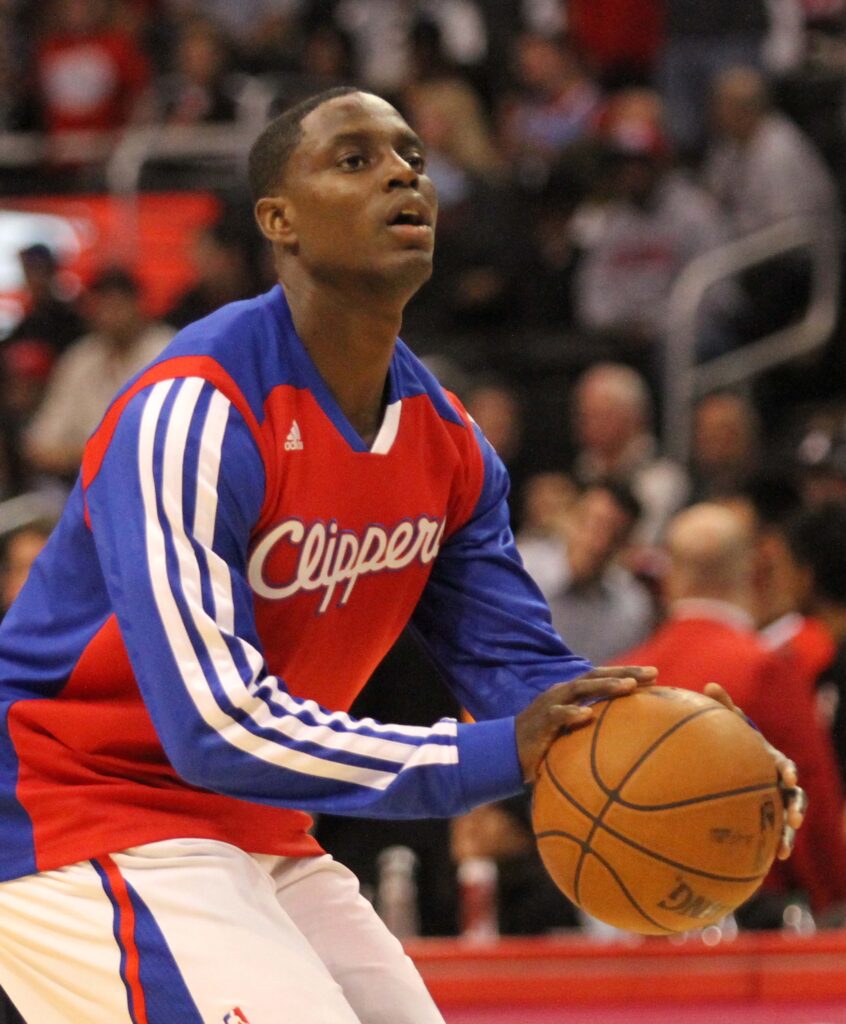
14. **Darren Collison – Walking Away From $10 Million and More (2019)**In today’s NBA, where contracts are astronomical and players routinely sign deals worth tens of millions, it’s almost unthinkable for an athlete to voluntarily walk away from a guaranteed payday, especially one in their prime. Darren Collison, a veteran point guard, was certainly one of those players making serious bank. He earned “a total of $10 million during his 2019 season with the Pacers,” and given his steady play, he was certainly in line for more lucrative offers.
Collison was a valuable asset, known for his reliable ball-handling, solid shooting, and veteran leadership. “After the season, despite plenty of interest in him,” and with multiple teams eager to sign him to continue their championship aspirations, Collison made a decision that left the NBA world absolutely bewildered. He “decided to retire from the game.” This wasn’t an injury-forced exit, nor was it a quiet fade into obscurity; it was a conscious choice to step away from the game and, more remarkably, from an astonishing amount of money.
Teams, frankly, didn’t buy it at first, with “multiple squads tried to get him to join during the 2019-2020 midseason.” They saw a player who still had a lot to offer and a lot of money to earn. Yet, Collison “has stuck to his guns and has remained in retirement,” reportedly for personal reasons, including his faith. His decision was a shocking testament to prioritizing values beyond wealth and fame, a rare and powerful statement in an industry increasingly defined by mega-deals. It truly left many wondering if they’d ever see a player walk away from so much for such personal conviction again.
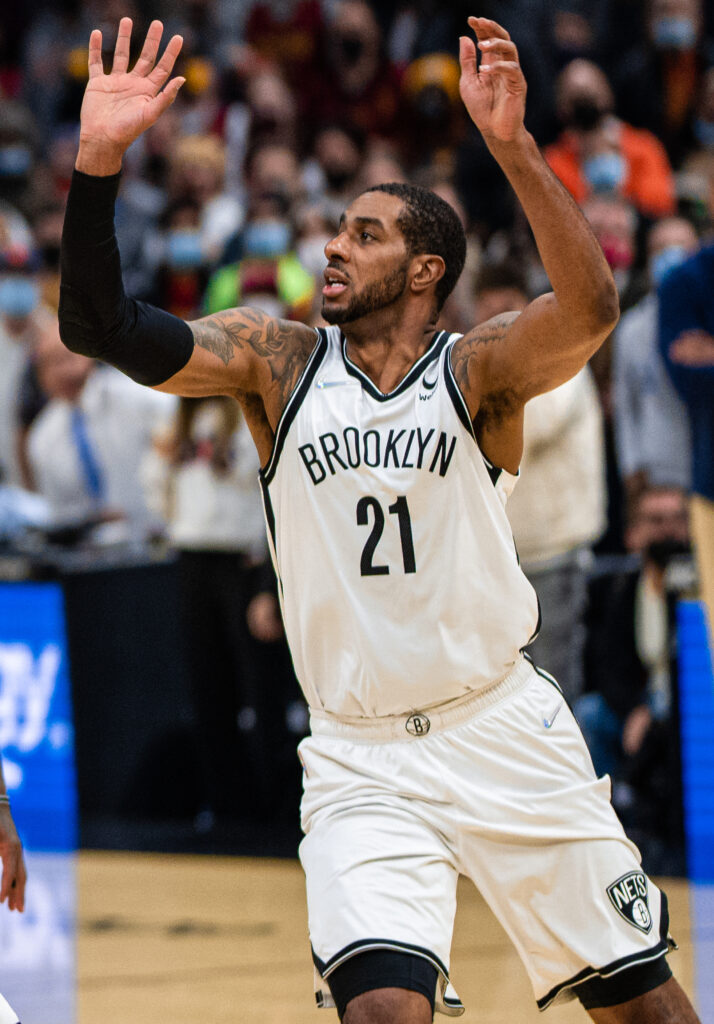
15. **LaMarcus Aldridge – Health First, Championship Dreams Second (2021)**After a long and successful career as a dominant power forward, LaMarcus Aldridge, at “35-years-old,” seemed to have one final goal: chase that elusive NBA championship ring. In 2021, he joined the star-studded Brooklyn Nets, a team widely considered a strong contender for the title. It felt like the perfect late-career move, a chance for a respected veteran to finally hoist the Larry O’Brien trophy. Fans and analysts alike anticipated his contributions to a powerhouse roster.
However, destiny had other plans. Less than a month after signing with the Nets, Aldridge’s world was turned upside down when he “missed two games with an irregular heartbeat.” This wasn’t a nagging injury or typical wear-and-tear; it was a serious health scare that immediately put his entire career, and indeed his life, into frightening perspective. The immediate concern shifted from basketball performance to fundamental well-being.
Following this terrifying health scare, Aldridge delivered a bombshell that “shocked the NBA world when he announced his retirement on Twitter.” His statement was clear, concise, and incredibly poignant: “‘For 15 years I’ve put basketball first. And now, it is time to put my health and family first.'” It was a powerful declaration, prioritizing his life over the game he loved and the championship dream he had pursued. His sudden departure served as a stark, emotional reminder that some decisions are far bigger than basketball, highlighting the fragility of health and the ultimate importance of family and personal well-being, even for elite athletes at the cusp of achieving their ultimate goal.
And there you have it, a collection of goodbyes that shook the foundations of their respective sports and reminded us that beneath the jerseys and beyond the highlight reels, athletes are complex individuals making deeply personal choices. These aren’t just stories of records and championships; they’re tales of passion lost, health prioritized, new paths forged, and the incredible courage it takes to walk away, even when the world expects you to stay. They leave us not just with memories of their greatness, but with a profound understanding of the human spirit’s enduring quest for fulfillment, on and off the field. The reverberations of these decisions continue to shape how we view sports, retirement, and the very human journeys of our heroes.



